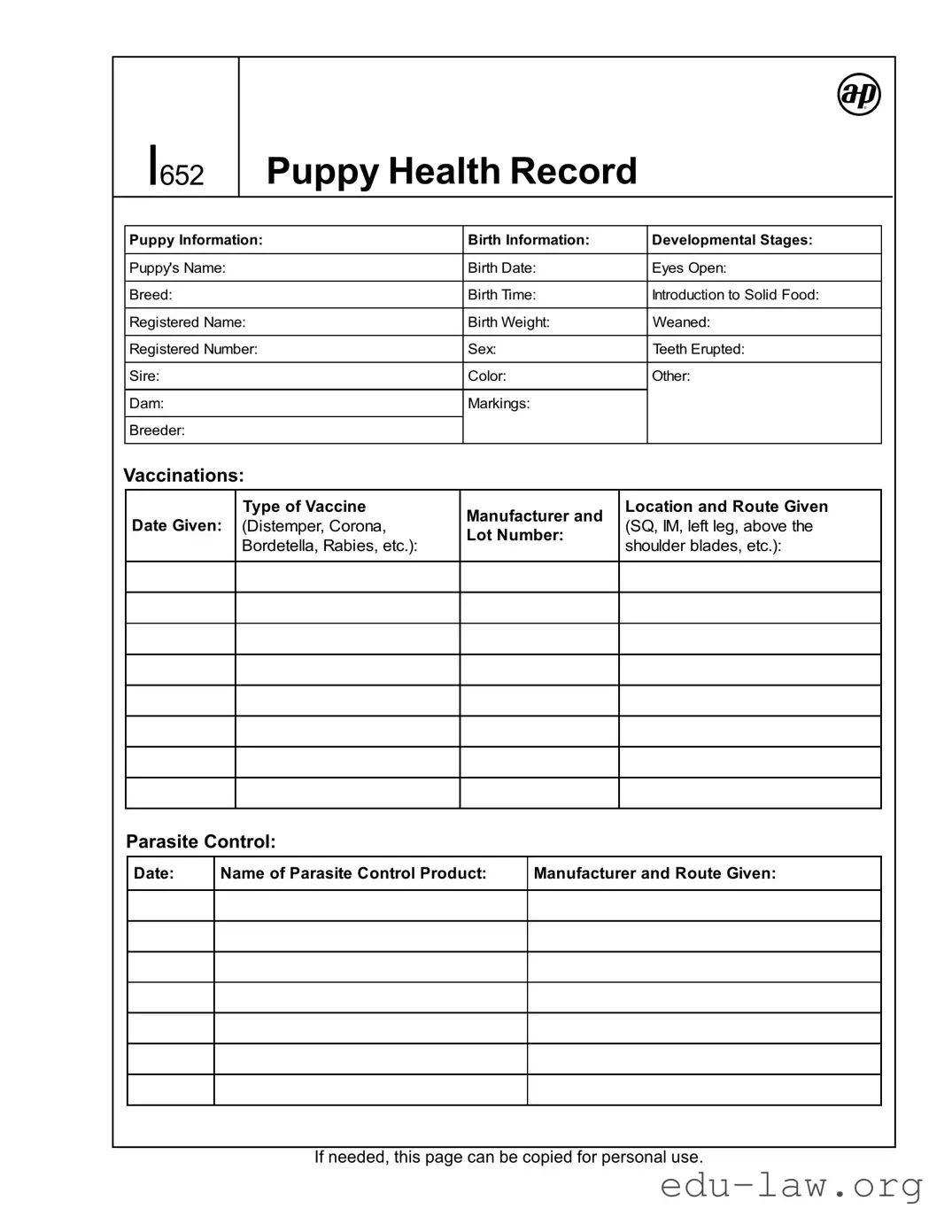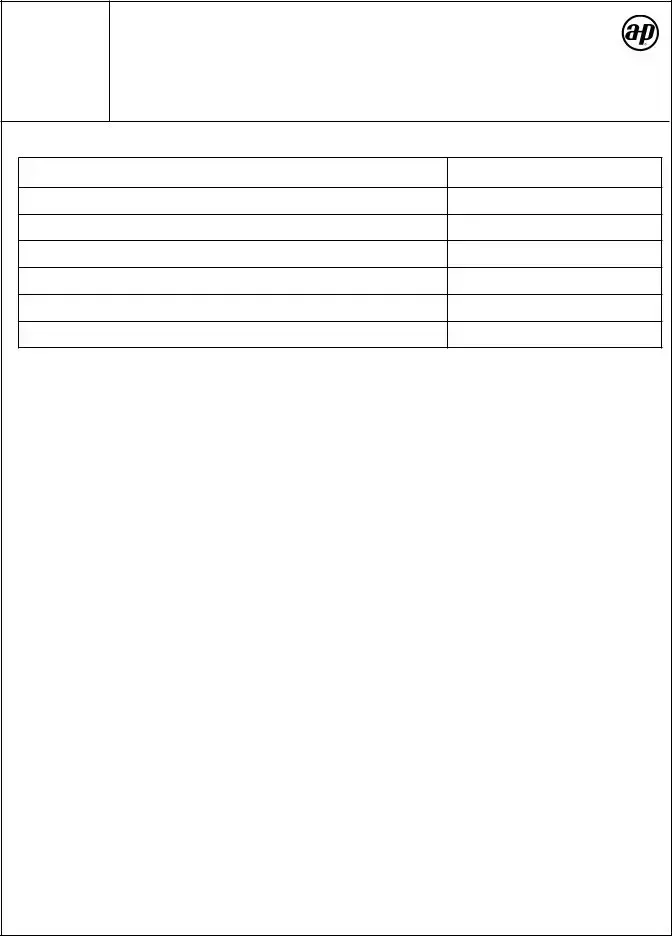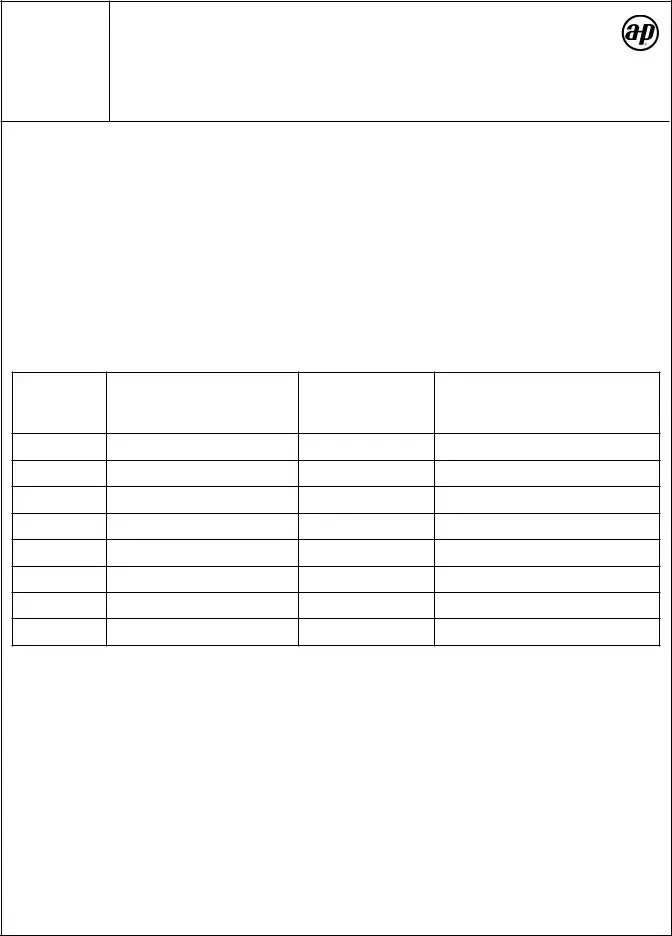What is the purpose of the Puppy Health Record form?
The Puppy Health Record form serves as a comprehensive account of your puppy's health and developmental milestones. It helps track vaccinations, parasite control, and major events from birth to young adulthood. This record is essential for ensuring your puppy receives appropriate care and vaccinations at the right times.
What information is included in the Puppy Health Record?
This form captures critical details such as the puppy's name, breed, birth date, and physical attributes. It also outlines significant developmental milestones, vaccination records, and parasite control treatments. Additionally, sections for examinations and procedures performed by a veterinarian or owner are recorded to keep all health information in one place.
How should I use the vaccination section?
Each time your puppy receives a vaccination, write down the date, type of vaccine, manufacturer, and the location where it was administered. Keeping this section updated is vital for tracking your puppy's immunization schedule. It ensures you do not miss any vaccinations essential for your puppy's health.
What vaccinations should my puppy receive, and when?
The Puppy Health Record form suggests a schedule that typically starts around 6-8 weeks of age. Your puppy should receive its first vaccine at that time, with additional shots following at three-week intervals. Common vaccinations include Distemper, Bordetella, and Rabies. It's best to consult your veterinarian to get recommendations tailored to your puppy.
What are the recommended procedures for parasite control?
Parasite control typically begins at a young age. The form indicates de-worming treatments starting around 2 weeks and continuing at suggested intervals. Additionally, heartworm prevention should start between 6-12 weeks, depending on the product and season. Regular vet check-ups can help ensure your puppy receives the right parasite control products based on their specific needs.
Why is it important to track developmental milestones?
Tracking developmental milestones helps you monitor your puppy's growth and health. Early identification of any potential health issues can lead to timely medical intervention. Milestones like introduction to solid food and spaying or neutering are also important for your puppy's long-term health and well-being.
Can I make copies of the Puppy Health Record form?
Yes! The form is designed to be copied for personal use. Keeping a backup or multiple copies can help you maintain accurate records, especially if you plan to share them with a veterinarian, pet sitter, or another caretaker. Having this information readily available supports seamless communication about your puppy's health care.


